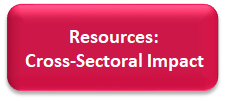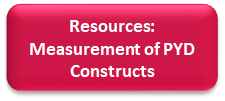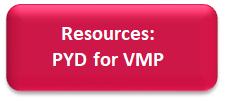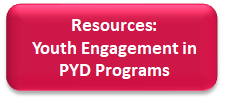Recent Learnings for Cross-Sectoral Impact of PYD Programs
Significant progress has been made over the past few years to add to the evidence that PYD programs in LMICs can have positive effects across sectors. Most of this evidence is for programs that combine or integrate sexual and reproductive health (SRH) programs with workforce development (WFD) or economic improvement programs. Not surprising, these programs demonstrate positive effects on SRH and WFD outcomes. Some of the programs with strong cross-sector impacts focus specifically on reducing barriers to education and economic opportunities which are highly gendered. Girls often benefit from these programs when gender norms, as well as individual skills, are influenced by program activities. Although there is still much to learn about how to optimize interventions for impact across multiple sectors, recent research points to important lessons about what has worked so far. Programs that intervene at multiple levels (e.g., youth, family, peers, school, community) to increase assets, agency, contribution, and foster a more supportive environment hold the potential to improve outcomes for youth in LMICs across multiple sectors simultaneously.
Some early insights for each of the PYD learning agenda key questions are provided:
1. Do PYD programs have significant positive effects on outcomes in multiple sectors?
2. What are the best ways to design and implement PYD programs with cross-sector outcomes in LMICs?
DREAMS: Determined, Resilient, Empowered, AIDS-free, Mentored and Safe Women
One of the best embodiments of integrated programming addressing the nexus of violence and health is the Determined, Resilient, Empowered, AIDS-Free, Mentored and Safe (DREAMS) Initiative administered by the U.S. Department of State and PEPFAR. World Vision implements DREAMS programming in four countries (Kenya, Mozambique, Uganda, and Swaziland) and is a proud winner of the DREAMS Innovation Challenge for its Strengthening School Community Accountability for Girls Education (SAGE) project in Uganda.
New Vows: Empowering Communities to End Child Marriage
This report compiles research and data from four unique contexts—Afghanistan, Bangladesh, Senegal, and Uganda—on the issue of child marriage. In each of these countries, case studies were developed using firsthand accounts, a desk review of available data, and evidence of promising practices for the elimination of child marriage.
Soft Skills and Entrepreneurship Training for Secondary School Students in Uganda
This report details findings from a clustered randomized evaluation of the Educate! Experience program in Uganda. The program had positive impacts on Educate! graduates’ soft skills and educational outcomes as well as entrepreneurial success.
Educate! End of Course Evaluation Report
A final evaluation report on findings from the Educate! Program, which provides youth with skills training in leadership, entrepreneurship and workforce readiness, along with mentorship. Results indicate that the program led to improved livelihoods, increased business ownership and employment, increased community participation, and improved workforce readiness.
Girl Empower Intervention Baseline Survey Report
This report presents the results from the baseline assessment of the Girl Empower (GE) program in Nimba County, Liberia. GE is a program in rural communities which seeks to help 13 to 14 year-old girls make healthy life choices and decrease their risk of sexual abuse. The Girl Empower program includes a life skills curriculum and financial literacy component.
The effect of a gender transformative life skills education and sports-coaching programme on the attitudes and practices of adolescent boys and young men in Bihar
This report describes the Do Kadam Barabari Ki Ore project and its implementation and examines the extent to which it transformed gender role attitudes of boys. Findings highlight the promise of the Do Kadam approach of combining gender transformative life skills education and sports coaching as a pathway toward engendering norms and behaviors among boys and young men.
Reducing violence against women and girls in India: Lessons from the Do Kadam programme
This brief presents evidence from the Do Kadam Barabari Ki Ore programme which is a suite of interventions that address different aspects of the problem of violence against women and girls. The four intervention projects included gender transformative life skill sessions, cricket sessions, gender transformative group learning sessions, and training sessions within existing platforms of the Government of Bihar. Findings from all four intervention projects confirm that exposure to the interventions was associated with an increase in action taken by target populations to stop incidents of violence against women and girls.
Effect of Youth in Action on Work Readiness and Socioeconomic Outcomes: Findings from Malawi
This report presents findings on the Youth in Action (YiA) program in Malawi. The study sought to understand how youth work readiness (financial literacy, work support and resources, academic skills and transferable skills) might change for a sample of youth over the YiA-program period and how those changes might impact socioeconomic outcomes (income earning status, adequate savings, credit access).
Effect of Youth in Action on Work Readiness and Socioeconomic Outcomes: Findings from Burkina Faso
This report presents findings on the Youth in Action (YiA) program in Burkina Faso. The study sought to understand how youth work readiness (financial literacy, work support and resources, academic skills and transferable skills) might change for a sample of youth over the YiA-program period and how those changes might impact socioeconomic outcomes (income earning status, adequate savings, credit access).
Effectiveness of a community-based intervention to delay early marriage, early pregnancy and improve school retention among adolescents in India
Findings from a study focused on examining the impact of a multi-pronged community based intervention on early marriage, early pregnancy and school retention among young people in two states of India.
Assessment of Integrated Workforce Development and Sexual and Reproductive Health Interventions with Recommendations for the Future
USAID’s YouthPower Action project carried out research to explore programs that seek to address both sexual and reproductive and workforce development to better understand the nature and impact of such integrated programs. This report helps development practitioners understand how projects have integrated activities in these two sectors and which features and combinations of features of those integrated programs have the most positive impact on youth.
Wezesha Vijana Girls’ Advancement Program (GAP) East Africa (Kenya and Tanzania) Outcomes Report
This report contains findings from a cross-sectoral program working with highly vulnerable adolescent girls (ages 10-14) in Kenya and Tanzania. The evaluation indicates positive impact on school attendance and improvements in economic, health and social assets.
Women’s Empowerment in Action: Evidence from a Randomized Control Trial in Africa
Findings from an evaluation examining the impacts of a multifaceted program that provides Ugandan adolescent girls an opportunity to acquire vocational skills to enable them to start small-scale income generating activities, and life skills to enable them to make informed choices about sex, reproduction and marriage are presented in this report. Results indicated positive social and economic outcomes.
The role of training programs for youth employment in Nepal: Impact evaluation report on the employment fund
This report presents the results from an impact evaluation of the Adolescent Girls Employment Initiative (AGEI) in Nepal focused on assessing effects of training and employment placement services in Nepal. Launched in 2009, the intervention provided skills training and employment placement services for more than 40,000 Nepalese youth over a three-year period, including a specialized adolescent girls’ initiative that reached 4,410 women ages 16 to 24. The results showed that intervention positively improved employment outcomes as well as economic and psychological empowerment.
Adolescent Girls Initiative-Kenya: Midline Results Report
This report presents findings from a midline assessment of the Adolescent Girls Initiative–Kenya (AGI-K) program which delivered multi-sectoral interventions to over 6,000 girls ages 11–15 in two marginalized areas of Kenya. Results from a randomized control trial showed that the AGI-K program had positive effects on short- and medium-term education, social, health, and economic assets.
Beyond the classroom: integrating family and community into life skills education for young people
A brief report on findings from an intervention focused on better understanding how the role of family and community can be critical in life skills education. The participants included Kenyan adolescent girls in grades six, seven and eight. The topics covered included: self-awareness and self-esteem; sexuality; reproductive health; drugs and substance abuse; effective communication and decision-making. The results showed increased (self-reported) higher educational aspirations, increased self-confidence and greater interest in schooling.
The Impact of an Adolescent Girls Employment Program: The EPAG Project in Liberia
This paper presents findings from the impact evaluation of the Economic Empowerment of Adolescent Girls and Young Women (EPAG) project in Liberia. The impact evaluation found that employment and earnings among the participants increased significantly. In addition, positive effects on a variety of empowerment measures, including access to money, self-confidence, and anxiety about circumstances and the future was documented.
Life skills, employability and training for disadvantaged youth: Evidence from a randomized evaluation design
This article discusses results from an impact evaluation of Dominican Republic’s Youth and Employment Program, Juventud y Empleo (JE). The evaluation assessed traditional labor market outcomes and outcomes related to youth behavior and life style, expectations about the future and socio-emotional skills. It showed positive impacts of JE in different measures of non-cognitive skills. Additionally, a reduction in the pregnancy rate was also reported.
Adolescent Girls Empowerment Programme: Endline Technical Report
Evaluation report on the Adolescent Girls Empowerment Programme (AGEP), which focused on building the social, health, and economic assets of adolescent girls aged 10–19 in Zambia. Key findings observed included improved sexual and reproductive health knowledge, improved self-efficacy, improved savings behaviors and decreased transactional sex (for girls who were sexually active at the start).
Evaluation of Filles Éveillées (Girls Awakened): A pilot program for migrant adolescent girls in domestic service
Evaluation report of the Filles Éveillées (Girls Awakened) intervention which focused on providing migrant adolescent girls in Burkina Faso working in domestic service with a safe space to meet regularly, build their life skills and link them to services. Significant improvements were observed across all outcomes of interest including self-confidence, health knowledge and social capital.
Evaluation of the responsible, engaged, and loving (REAL) fathers initiative on physical child punishment and intimate partner violence in Northern Uganda
The REAL Fathers Initiative is a community-based mentoring program that works with young Ugandan fathers (16-25 years old) who are parenting a child 1-3 years old. Results from the evaluation showed positive effects of the intervention on increasing positive parenting practices, confidence in using nonviolent discipline, and lowering the odds of use of physical punishment, and use of psychological and verbal intimate partner violence. (2017)
Self-Determination, Engagement, and Young Energy in a Fragile Environment: Positive Youth Development in Northeast Kenya
This report presents key findings and lessons learned from the Garissa Youth and Yes Youth Can! North Eastern Region projects. The EDC-led youth livelihood projects in the North Eastern Province of Kenya engaged youth in career development, livelihoods, and civic participation activities while empowering them to improve their economic opportunities. (2016)
GREAT Project Endline Report
Endline report of the Gender Roles, Equality, and Transformations (GREAT) project which aims to develop and test a package of evidence-based, scalable, life-stage tailored interventions to transform gender norms, reduce gender-based violence (GBV), and promote gender-equitable attitudes and sexual and reproductive health (SRH) among adolescents ages 10-19 in post-conflict communities in northern Uganda. (2016)
Towards Economic and Sexual Reproductive Health Outcomes for Adolescent Girls (TESFA)
This report is a summary of ICRW’s evaluation of the Towards Economic and Sexual Reproductive Health Outcomes for Adolescent Girls (TESFA) program which examined whether participation in the TESFA project had impacts on the lives of the adolescent girl participants in terms of their economic opportunities, reproductive health and general wellbeing. (2014)
Shaping Futures: Planning Ahead for Girls’ Empowerment and Employability. An evaluation study of a school-based girls’ gender integrated skills program in Delhi, India
This evaluation report presents findings from ICRW’s Planning Ahead for Girls’ Empowerment and Employability (PAGE) program. PAGE was an intervention research project which aimed at building empowerment and employability skills in school settings for girls from low-income communities. (2017)
Adolescent girls' experiences of violence in school in Sierra Leone and the challenges to sustainable change
This article by Anita Reilly explores what is working to reduce gender-based violence in junior secondary schools in Sierra Leone, focusing in particular on Plan UK's Building Skills for Life project. The project focuses on supporting the empowerment of adolescent girls through a life cycle approach, focusing on four core areas: the attainment of a quality basic education, freedom from violence, economic empowerment, and the enjoyment of sexual and reproductive health and rights. (2014)











